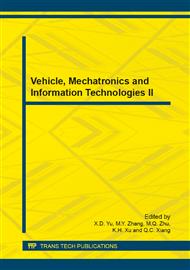p.4069
p.4073
p.4077
p.4082
p.4086
p.4090
p.4096
p.4100
p.4104
Prediction Model on Urban Residential Water Based on Resilient BP Learning Algorithm
Abstract:
Urban water is an important part of urban water systems, Predicting urban residents water is the important work to ensure urban people's lives and to achieve urban water resources supply and demand balance. For BP algorithm existing problems in the training process, this paper uses resilient BP algorithm to improve it. Firstly, analysis of the impact factors of urban residents water for adjusting the prediction model; Then, the study on resilient Back Propagation algorithm, to overcome the adverse effects of gradient amplitude; Finally, the study identifies number of hidden nodes, dynamically adjust related parameters, data normalization and so on predict key steps. The results show that the convergence rate of resilient BP algorithm is faster than increased the momentum item of BP learning algorithm and variable learning rate of BP algorithm , it is simple to achieve and does not consume too much memory.
Info:
Periodical:
Pages:
4086-4089
Citation:
Online since:
March 2014
Authors:
Price:
Сopyright:
© 2014 Trans Tech Publications Ltd. All Rights Reserved
Share:
Citation:


